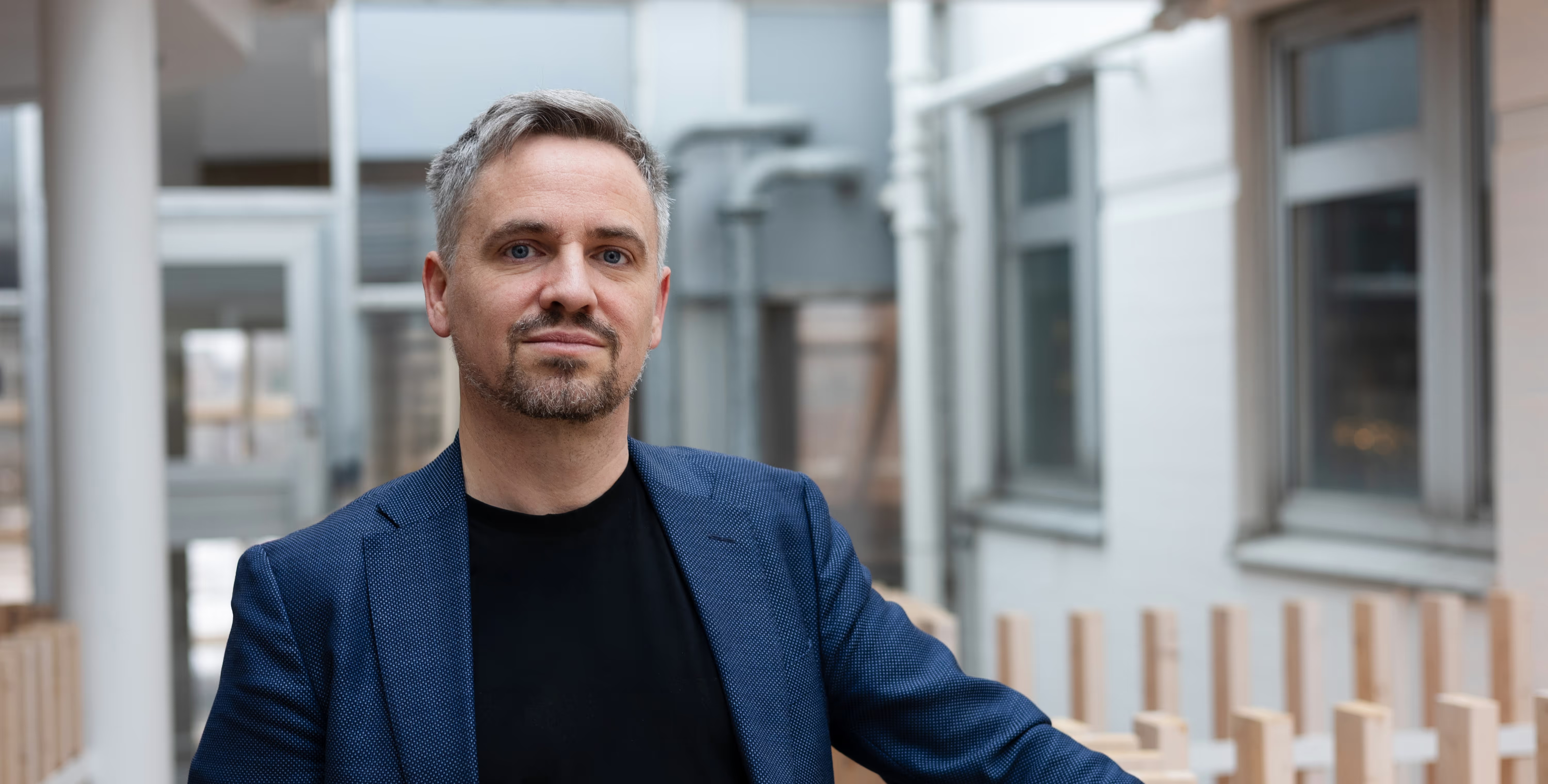Introducing the latest interview in the Luminar Ventures Founder Series—a platform highlighting the journeys and insights of standout Nordic entrepreneurs from our portfolio. In this edition, we meet Dominic Davies, CEO and Co-founder of Lightbringer. Drawing on his dual background as a patent attorney and software developer, Dominic shares what inspired him to revolutionize the patent industry with AI, the lessons learned from previous ventures, and how Sweden’s vibrant tech scene fuels Lightbringer’s rapid growth and innovation.
You have over 20 years of experience as a patent attorney and a background in software engineering. What was the pivotal moment that made you realize the patent industry needed disruption, and how did your dual expertise prepare you for this challenge?
I’ve always tried to use software to solve problems in my patent work, but earlier AI technologies like NLP weren’t powerful enough. Everything changed in late 2022 when I discovered GPT technology. I got early access to OpenAI’s API, plugged it into my software, and it worked at a much higher level. That’s when I realized this technology could disrupt knowledge work and transform how ideas are handled.
Before Lightbringer, you co-founded Invent Horizon, which also leveraged automation. What major lessons did you take from that experience?
The biggest lesson was how much manual work could already be automated. Back in 2015–2016, I automated the process of managing paper documents using microservices and early tools like Zapier. That showed me there was a lot of untapped potential for automation in this industry.
You’ve written over 200 patents. How has seeing the process from both the attorney and founder perspectives changed your view on what innovators need?
As an attorney, I developed certain biases about how things should be done. But talking to inventors as a founder instead of purely as an attorney, I realized how much they disliked the patent process and how misaligned it was with their needs. That shift in perspective made it clear there was an opportunity to build something better.
How has moving to Sweden and working in the Nordic startup ecosystem influenced your approach?
My time in the UK was mostly in banking and legal sectors, not startups. I know London is a tech hub, but there’s something special happening in Sweden. The density of innovation here, especially in applied AI, is off the charts. Companies like Sana Labs and Lovable are growing rapidly, and we’re part of that wave. It’s an exciting time to build in Sweden.
Lightbringer has scaled quickly while maintaining weekly releases. How did you manage this, and what was your approach to building the team?
The key is a very clear product and company vision: to build the automated patent process for every technology company. With that vision, it’s easier to define what to build and to attract the right people. Full credit goes to my co-founder Markus for his work on this. Having clarity on our goals made it much easier to scale the team and maintain quality.
How do you balance automation with the expertise required for patent quality?
We embrace advances in AI and integrate them into our workflow, but we’re fundamentally a human-in-the-loop service. Every document is reviewed by experienced attorneys to ensure quality, supported by AI and software. This allows us to match or exceed traditional firms in quality.
You’ve reduced processing times from months to weeks. Beyond speed, how do you measure success and ensure quality isn’t sacrificed?
Quality is fundamental. We use AI to process documents, but every output is reviewed by a qualified attorney to meet our detailed standards. Our goal is to deliver better quality than traditional firms, not just faster results.
What’s your strategy for convincing customers to switch from established law firms to an AI-driven platform?
It’s challenging, but we’re gaining traction by offering more transparency and immediate feedback about their patent portfolios, something traditional firms can’t match. Our platform aligns patent strategy with business interests.
What aspects of the traditional patent system do you think will become obsolete soon?
Long project cycles, taking months to file a patent, will become obsolete. We aim to reduce this to weeks, days, and eventually minutes.
As AI changes patent processing and the nature of innovation, what does this mean for companies’ IP strategies?
Innovation is speeding up, so companies need to handle IP much faster to stay competitive. Our goal is to help them manage IP at the pace of modern tech development.
Do you see Lightbringer as a disruptor, and how is that perceived?
We’re still seen as the “crazy ones” by some in the traditional industry, but that’s changing. Disruption always meets resistance at first, it’s a sign we’re making real change.
How did your relationship with Luminar Ventures start?
We were recommended to reach out to Magnus at Luminar. We had a great initial conversation, he immediately understood our vision. As we talked to other investors, we kept coming back to Luminar as the best fit. When we met the full investment committee, our whole team felt the excitement and alignment. They’re very pro-disruption, and we were thrilled to partner with them.
What are you most excited about right now at Lightbringer?
There’s a clear mindset shift: founders want modern solutions for business problems, including patents. AI is advancing rapidly, and we’re in a great position to ride that wave.
What can people look forward to from Lightbringer in the near future?
New features, better ways to understand and control your company’s patents, and new educational tools for business owners. We’re committed to pushing this revolution forward.
Read more about Lightbringer at www.lightbringer.com
Stay tuned for more inspiring stories from visionary founders within the Luminar Ventures portfolio, published regularly as part of The Founder Series.
